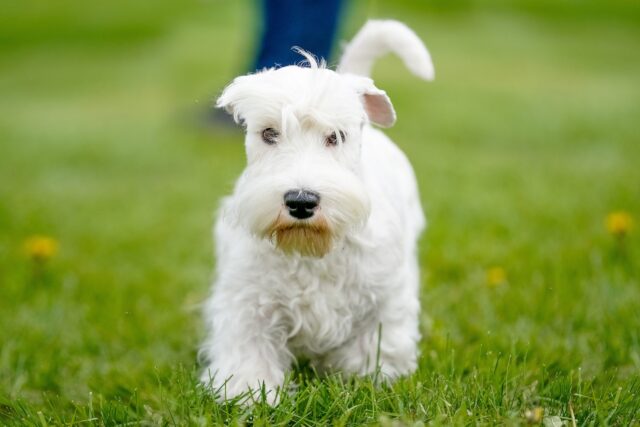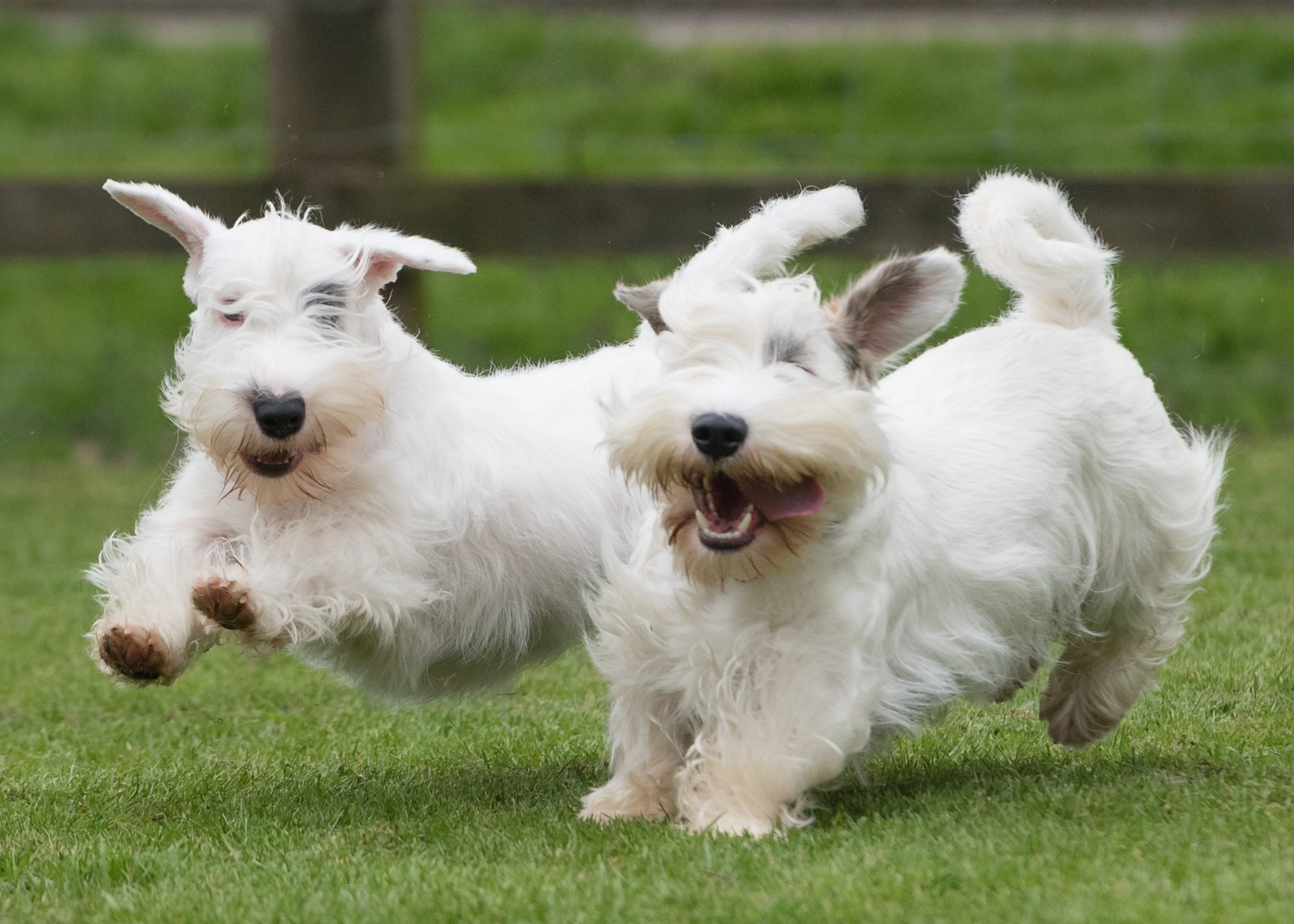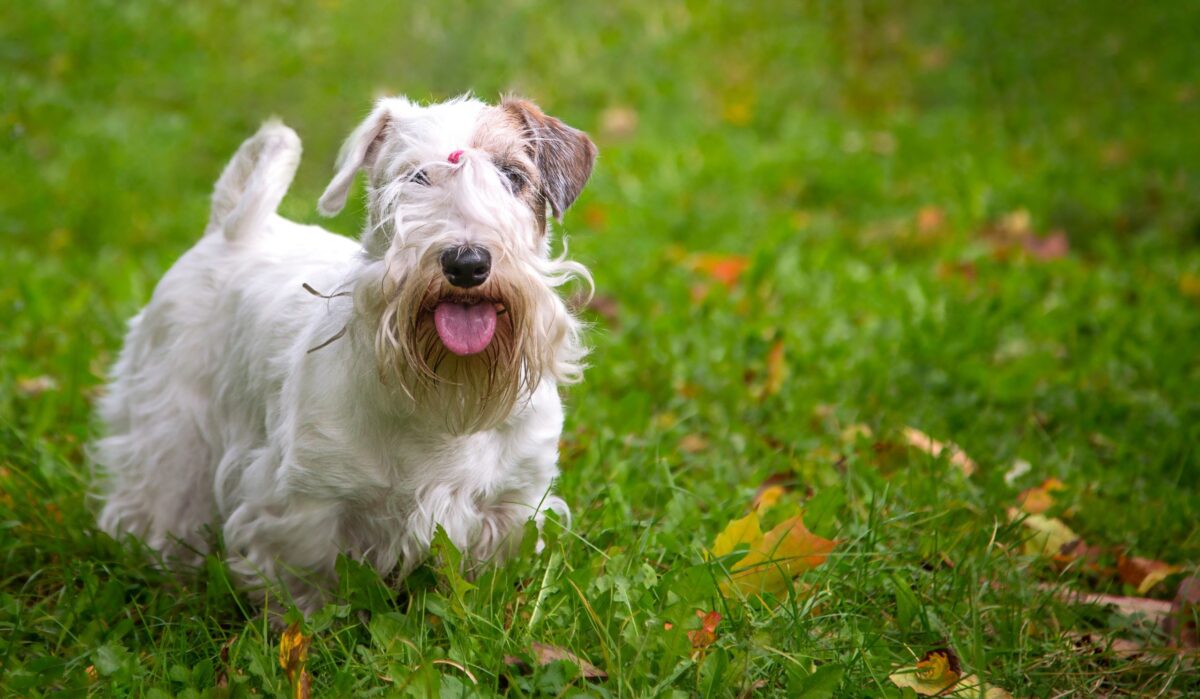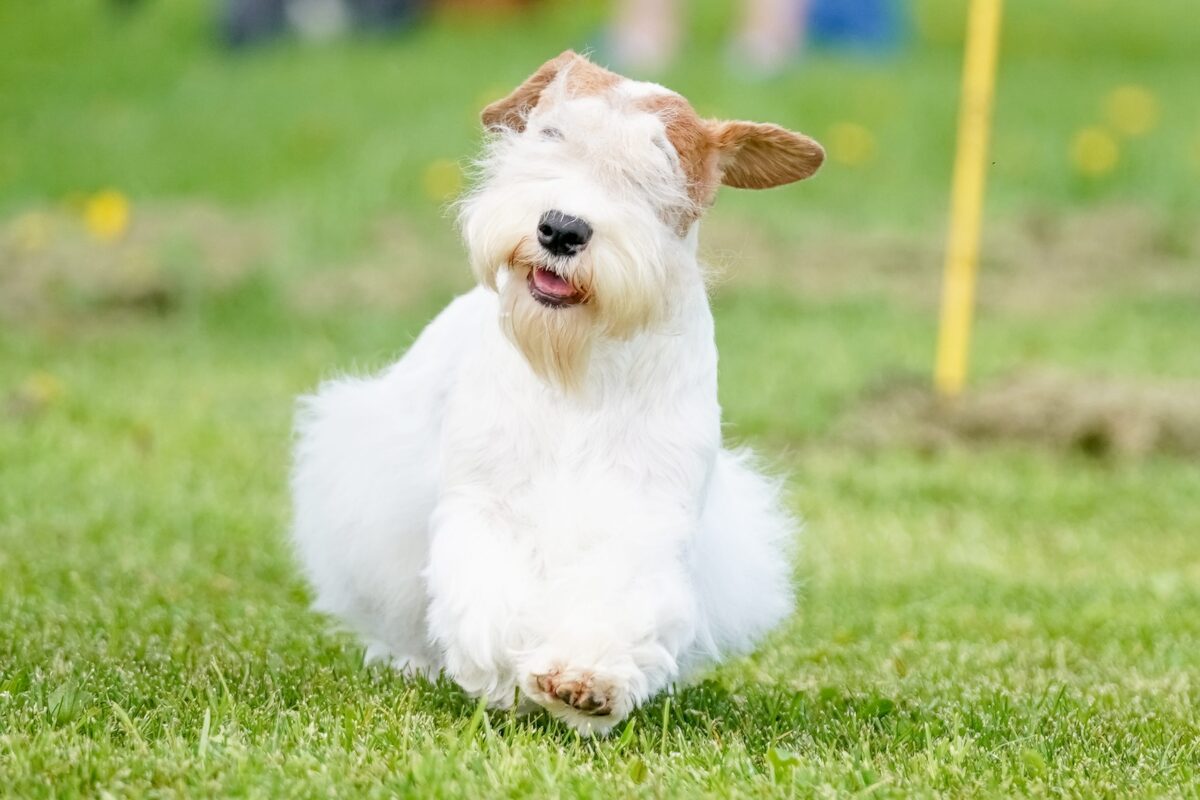Sealyham Terrier
No products found which match your selection.
Shelter Dog Meal Donation Count:
No products found which match your selection.
The Sealyham Terrier is a small but sturdy breed known for its playful and affectionate nature. Despite their moderate energy levels, they enjoy being active and participating in family activities. Their low-shedding coat does require regular grooming to keep them looking their best. With their confident demeanor and eagerness to please, Sealyhams make excellent companions and family pets, particularly in homes that can provide the structure and socialization they thrive on. Overall, the Sealyham Terrier is a delightful blend of charm and tenacity, making them a cherished addition to any home.
The Sealyham Terrier is a small, sturdy dog breed with a distinctive appearance. They were originally bred in Wales for hunting small game. Today, they are cherished as companion animals, known for their loyalty, playfulness, and unique looks.

Developed in the 19th century in Wales, the Sealyham Terrier was named after the Sealyham House, where Captain John Edwardes bred them to hunt otters, foxes, and badgers. Their courage and determination made them excellent working dogs in rugged terrain.




Generally healthy, but can be prone to certain genetic conditions like retinal dysplasia and deafness. Regular veterinary check-ups are important.
Requires regular grooming, including brushing and stripping, to maintain the coat's condition and appearance.
Moderate exercise suffices; enjoys walks and playtime but does not require extensive physical activity.
Responds well to positive reinforcement. Early socialization and obedience training are recommended to harness their intelligent and sometimes independent nature.
A balanced diet suitable for a small, moderately active breed is essential. Portion control and quality nutrition will help maintain their health and vitality.
The Sealyham Terrier, with its endearing personality, manageable size, and moderate care requirements, makes an excellent companion for a wide variety of households. Their playful and affectionate nature, combined with their distinctive looks and storied history, endears them to many. Prospective owners should be prepared for regular grooming and the joy of engaging with this intelligent and somewhat independent breed. With the right care and training, the Sealyham Terrier can be a delightful addition to any family, bringing joy, companionship, and a touch of Welsh heritage into the home.
Sealyham Terriers are generally robust and healthy dogs, but like all breeds, they can be prone to certain health conditions. Awareness and early detection through recommended tests can help in managing these issues effectively. Here are some common health issues seen in Sealyham Terriers and the recommended tests for them:
In addition to these tests, a proactive approach to health care can help prevent or manage some of these issues. This includes maintaining a healthy diet, regular exercise, and keeping up with vaccinations and parasite control. Early detection and treatment of health problems can greatly improve the quality of life for a Sealyham Terrier.
The iHeartDogs Free Rx Discount Card Program is a pet prescription discount card that can help you save money on your furry friend’s medications. The card is free to sign up for, and you can use it at participating pharmacies nationwide. To use the free program, simply show the card to your pharmacist when you pick up your pet’s prescription. The pharmacist will then scan the card, and you will receive a discount on the price of the medication.LEARN MORE
The annual cost of caring for a Sealyham Terrier, like any dog, can vary depending on various factors including location, the dog’s health, and the level of care you choose to provide. Here’s a breakdown of the typical expenses:
Total Estimated Annual Cost:
$3000 - $9200
It's important to note that these figures are estimates and can vary. Also, the first year of owning a dog can be more expensive due to one-time costs like spaying/neutering, initial vaccinations, and training. Regular budgeting for your dog's needs and an emergency fund for unforeseen costs are essential for responsible pet ownership.